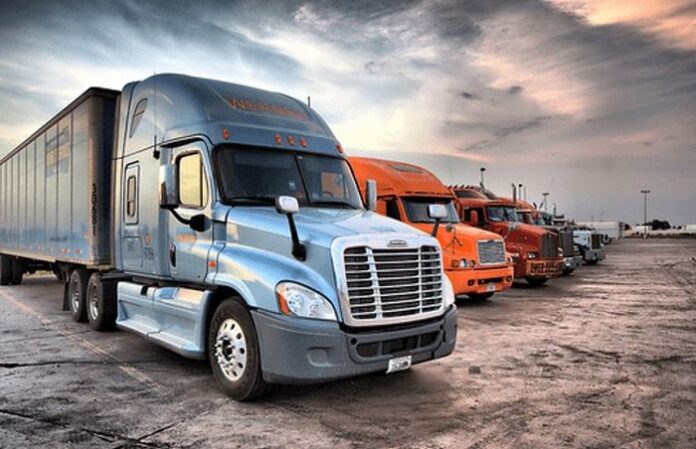Truck dispatchers are essential for every trucking company. These people are behind the main part of this logistics ‒ a successful and timely freight delivery. Many businesses in retail rely on dispatcher’s jobs. Basically, these people manage freight delivery in every way possible: from choosing the best way to load the freight to monitoring the situation on the road ahead of the driver. Fleet Care is a full-time dispatch company that provided us today with relevant information on the topic: https://fleet.care/services/dispatch-services/.
This position includes monitoring the driver’s log, checking on their health and safety conditions, monitoring traffic and weather situations, and more.
A truck dispatcher is also the person behind every delivery route: these people figure out optimal routes and manage available drivers to deliver the freight on time, while also making it more profitable for the carrier company.
It might sound like a truck dispatcher does the same job as a freight broker, but in reality, these are two distinctly different job positions. Freight brokers represent both the carrier and the shipper, while truck dispatchers work solely for the carrier. This job position is also more about maintaining the balance of drivers working hours and clients satisfaction, while freight brokers mostly regulate shipping destinations.
How to become a truck dispatcher?
Truck dispatchers don’t need a degree to work, but it’s a job that certainly involves a lot of responsibility and a whole skill set. It’s not a starter job because of the many important duties it runs with. For example, dispatchers manage the working hours of truck drivers, decide the best routes and manage any issues that appear on the road ‒ both literally and figuratively.
So, what do you need to apply to this challenging job? GED or a high school diploma. Like we said, no degree, but if you have one in logistics or management, this will be a huge plus.
A prior experience in similar jobs is a must most of the time. A few years of working in retail also can be considered an appropriate experience, but if you had a job that involved anything that revolves around trucks and logistics, you will most likely succeed in taking this position.
A set of skills: being an advanced computer user and a fast learner is a must. You also have to be good with teamwork ‒ sometimes it can be crucial in terms of communicating with drivers and resolving conflicts. Being an advanced English speaker is also a must, and knowing any other language will be a benefit.
You don’t need to pass any exams or to have any license to get this job, although having a driver’s license will benefit you in this career. Applying for this job is no different from for any other position.
When it comes to safety ratings and requirements in the trucking industry, the term out of service; can be heard multiple times. Good trucking companies will tell you that out-of-service means no good in the trucking industry.
Basically, an out-of-service order is given by Commercial Vehicle Safety Administration (CVSA) if there’s a violation of roadside regulations and safety standards in place. The driver is out of service until the violation is resolved. This order means that either a driver or commercial vehicle or a trucking company created a hazardous roadside situation. For example, this can take place if the driver created an imminent hazard situation on the road, or if the vehicle failed safety inspection.
Both department of transport and CVSA can inspect any commercial vehicle ‒ they have the right to do so. If you don’t comply with most if not every regulation, your company can get an out-of-service order. Right after that, your trucking company will most likely receive extra attention in terms of checking driver and safety records.
What are the hours of service?
When we talk about receiving an out-of-service order, we have to keep in mind hours of service ‒ a very common reason to give said order. Hours of service (HOS) display the maximum amount of time (including the driving time) that drivers can spend on their duty. Hours of service also operate the frequency and length of rest periods ‒ an important parameter when it comes to driver’s safety. Drivers have to stay awake and alert, and it’s a no-brainer that to do that, they need a proper rest time.
Currently, the FMCSA has these rules that govern hours of service:
Exception for short-hauls. Short-haul exceptions are now expanded to the maximum of 150 miles and 14-hour work shifts. During negative weather conditions, the driving time window can be expanded to an additional two hours. At least thirty consecutive minutes break is required after every 8 hours of driving time (take a note: not of on-duty time like it was before). Also, the period of time on duty spent not for driving can be qualified as the required break. Drivers require ten hours minimum off-duty: at least seven of them in berth should be combined with at least two hours off-duty inside or outside of berth.
Figuring it all out can be hard ‒ the best way to check relevant rules is to find them on the FMCSA website. As a side note, a truck driver’s job requires decent amounts of rest to stay awake and alert on duty, especially in difficult weather conditions.
What does an out of service driver mean?
When a truck driver is declared out of service, he or she loses the permit to drive due to being on duty for an excessive amount of time ‒ more than permitted by safety standards.
This way, a trucking company has no right to require the driver to continue doing their job until they are cleared out by the law to do so.
Truck dispatchers are not drivers ‒ therefore, they don’t need a driver’s license. However, having one means you are well acquainted with traffic laws and the principles of operating vehicles. Of course, knowing traffic laws on an advanced level will benefit anyone in this job position, as well as knowing local roads. You won’t have to drive there, but knowing how it’s done is better than nothing when you’re dispatching people there.
So yeah, having a license is not required but strongly recommended ‒ this way you’ll most likely succeed in this career.
Like any other business in logistics, the trucking industry relies on people and their decisions. Truck dispatchers play a heavily responsible and important role in this business, effectively managing routes and making sure freights arrive in time.
Basically, a dispatcher’s job is all about scheduling drivers and figuring out the best way to operate them for many routes. Sounds like every dispatcher has to have result-oriented thinking and good management skills, but there’s more to it. So, what does it take to become a good worker of truck dispatch services?
What qualifies a good truck dispatcher?
Every trucking company specifies work instructions for their dispatchers individually. Duties and responsibilities vary here and there, but the main requirements stay the same:
Keeping records on the truck driver’s schedule, monitoring logs, and managing errors as well as rules violations. Trucks equipment also has to be monitored. Basically, the dispatcher’s responsibility here is to make sure every driver follows their route. Makes it on time and follows the rules.
Monitoring the weather on destination locations and along the routes to make sure the route is safe. This, of course, is done with the use of various applications that automate weather data gathering, but it’s the dispatcher who flags these issues and manages the routes according to them.
Keeping track of the driver’s health and safety, as well as managing their working hours to balance the driver’s condition with customer requirements.
Choosing the best ways to load trucks to maintain the cost-effectiveness of the company, as well as making sure that freight is safely loaded. The dispatcher’s role in this process is quite important as they optimize the number of trucks on the road while balancing it with delivery speed.
Managing the documentation. Truck dispatchers also check whether the driver has all needed documentation on and about the freight, shipment information, licenses and permits if needed.












